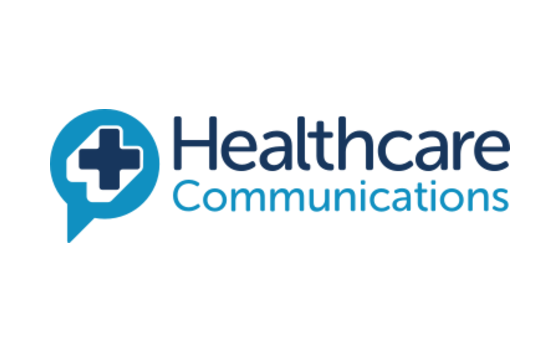 Healthcare Communications, the market-leading patient communications provider, is assisting King's College Hospital NHS Foundation Trust (KCHT) to implement a suite of solutions purpose-built to improve patient experience and increase staff efficiency. The new technology will allow the trust to advance its 'digital by default' patient engagement strategy, whilst also helping to reduce any backlogs caused by the Coronavirus pandemic before a second spike takes hold and ahead of this year's winter pressures.
Healthcare Communications, the market-leading patient communications provider, is assisting King's College Hospital NHS Foundation Trust (KCHT) to implement a suite of solutions purpose-built to improve patient experience and increase staff efficiency. The new technology will allow the trust to advance its 'digital by default' patient engagement strategy, whilst also helping to reduce any backlogs caused by the Coronavirus pandemic before a second spike takes hold and ahead of this year's winter pressures.
The contract was agreed in August and will run until 2025; as part of the agreement, the trust will implement Healthcare Communications' patient portal and eClinic video consultation platform, alongside eight additional solutions from the company's patient engagement platform.
The patient portal is designed to inform patients about the status of their appointments by automatically sending updates and digital letters to their smartphones, relieving staff of these administrative pressures. The portal will also enable Patient Initiated Follow-Ups (PIFU) and help the trust to reduce inbound phone traffic, by allowing patients to confirm, cancel or rebook appointments digitally with the click of a button, rather than phoning into the switchboard or specific departments.
eClinic will help to reduce the number of patients visiting KCHT hospitals for non-emergency appointments. The platform, complete with file-sharing capabilities, a chat function and translation feature, will also be used to provide urgent care for patients who cannot attend in person.
Jonathan Lofthouse, Site Chief Executive for the Princess Royal University Hospital said: "At King's, it has always been our agenda to move to a 'digital by default position', which is why we were keen to put digital technology at the forefront of our recovery and reset programmes.
"We firmly believe our richly diverse patient population deserves the very best in healthcare, and to deliver this we often need to reimagine what's gone before. Using new communication platforms will aid patient self-management, improve the speed, quality and accessibility of information, increase the quality of our clinical services, and help us to deliver against the future expectation of our patients and clinicians. I'm really very excited about this programme of work."
Charlotte English, Senior Improvement Lead, King's College Hospital, said: "We're dealing with a significant amount of Referral to Treatment (RTT) requests, which has been exacerbated by COVID, so it's really exciting to be exploring ways in which patients can take more ownership over their care, such as PIFU. We hadn't really explored this before, and we expect it to reduce our follow-up waiting lists. We're hoping it will also result in a drop in hospital admissions, which would be fantastic, especially as we enter our winter pressures and with the second wave of COVID looking imminent."
In addition to the patient portal and eClinic platform, KCHT will deploy a range of supplementary communication solutions from the patient engagement platform, including:
- Instant patient messaging - allows clinicians to send instant messages to large groups of patients, or schedule messages for a specific time and date. The application will be used to cancel clinics, send important health messages and encourage patients to shift to virtual channels
- Appointment scheduling bot - enhances a patients' ability to self-service by allowing them to reschedule their appointments
- Virtual assistants and proactive communication channels - a series of automated chatbots to respond to patient enquiries, and tools which allow patients to respond to hospital communications digitally
- Digital remote monitoring - remotely monitors patient conditions across their care pathway through eForms, chatbots and SMS
Kenny Bloxham, Managing Director, Healthcare Communications, said: "We're delighted to have agreed a five-year partnership with King's, and we're looking forward to supporting them in their recovery phase and helping them to advance their 'digital by default' IT strategy. Even before the pandemic, we were beginning to see an increased appetite for patients wanting to take greater control of their own care; our technology will allow them to do just that, while also reducing the burden of heavy administrative workloads and enabling remote engagement between staff and patients."
To streamline access between systems, Healthcare Communications has integrated eClinic with Intouch Health’s patient flow module. In addition, the company is working with KCHT on plans to extend accessibility to the patient engagement platform, following internal research that showed patients would prefer to access care from home. This includes simplifying elements of the technology, such as digital patient letters, to meet the needs of patients with cognitive disabilities.
About Healthcare Communications
Founded in 2000, Healthcare Communications is the leading provider of patient communication services in the UK healthcare market - working with more than 130 NHS organisations and delivering 120 million secure patient communications a year.It supports digitally-driven, patient-led NHS communications that improve engagement, boost appointment attendances and increase patient satisfaction levels. It helps the NHS interact with all patients across multiple channels, according to their individual preferences (such as via its digital portal, SMS, IVR, telephone and post).
Healthcare Communications is part of IMImobile PLC.